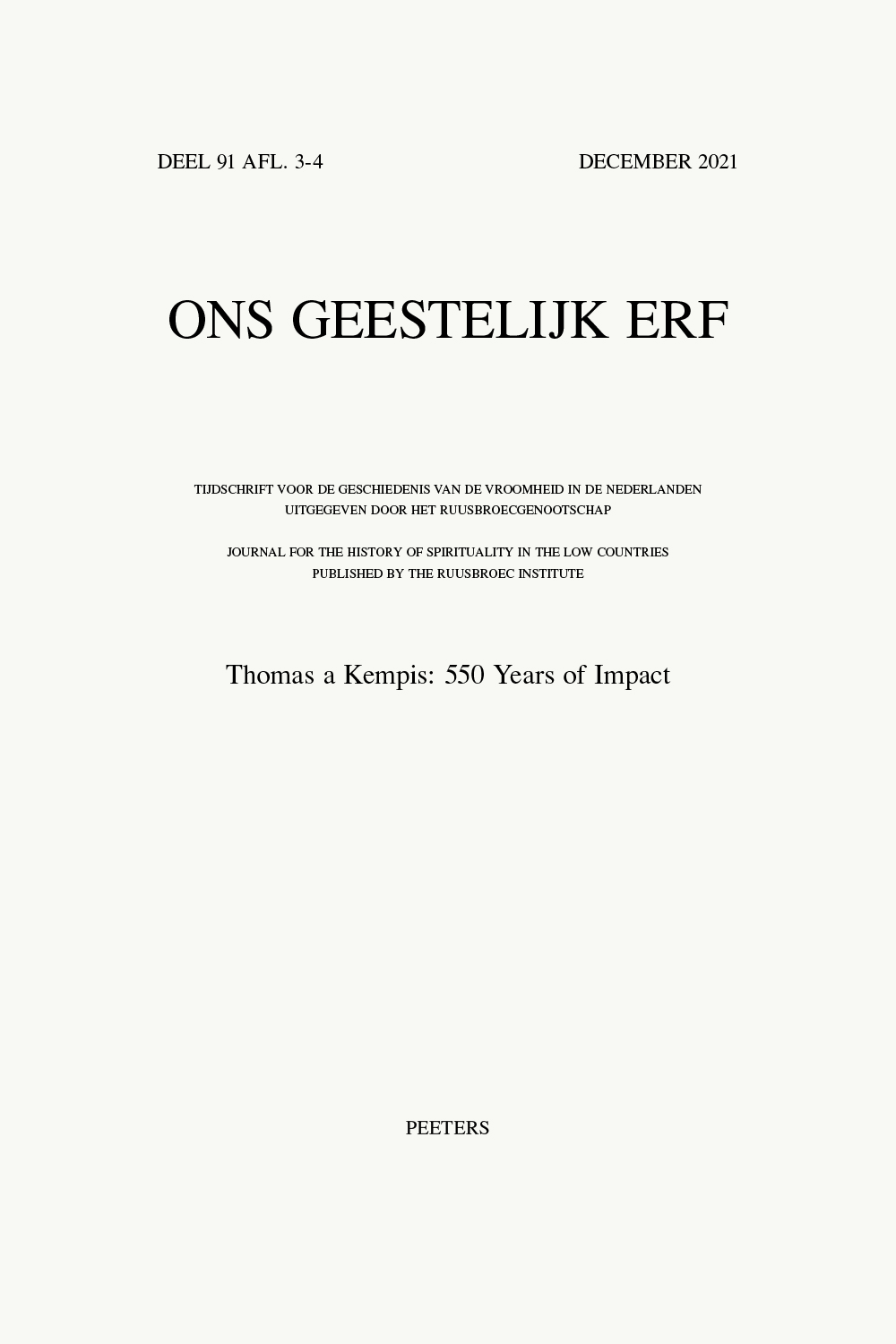 previous article in this issue previous article in this issue | next article in this issue  |

Preview first page |
Document Details : Title: Luther and Mysticism Author(s): LEPPIN, Volker Journal: Ons Geestelijk Erf Volume: 87 Issue: 1-2 Date: 2016 Pages: 8-27 DOI: 10.2143/OGE.87.1.3200537 Abstract : The essay argues that Luther was heavily influenced by Late Medieval mysticism, which was forgotten in Protestantism for a long time. As a monk, Luther had mystical experiences several times, as one may infer from his later recollections. Far more important, however, was his mystical reading, presumably inspired by John Staupitz. In 1515/16 he read John Tauler’s Sermons. He was mainly impressed by Tauler’s theology of penitence, especially because of its non- or antisacramental consequences. In the marginal notes to Tauler, one can also see Luther developing some central ideas of his later reformatory theology, for example the key notion that faith was the only remaining chance to receive God’s grace. As witnessed in particular by Luther’s letter to Staupitz from 1518, the reading ofTauler was decisive for Luther’s 95 theses and for the framework of his early theology in general. I further argue that mysticism was of lasting influence on Luther’s mature theology. This can be seen in the doctrines of justification, of Law and Gospel and of the priesthood of all believers, all three of them central motives in reformation theology and influenced by mysticism. This does not mean plain continuity, but the essay shows a process of transformation in which Luther adopted the ideas from the mystics, changed them in some way and thus gave them a new form. Nevertheless, mysticism kept its place in the heart of Luther’s theology. |
|


